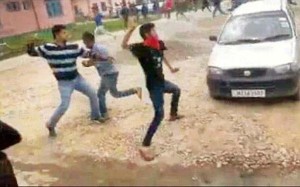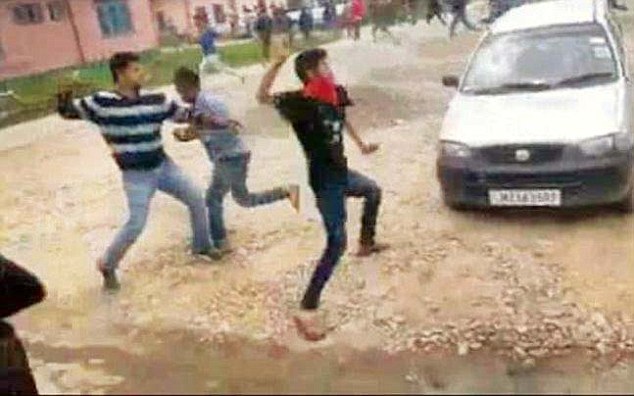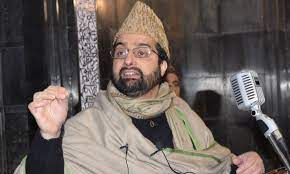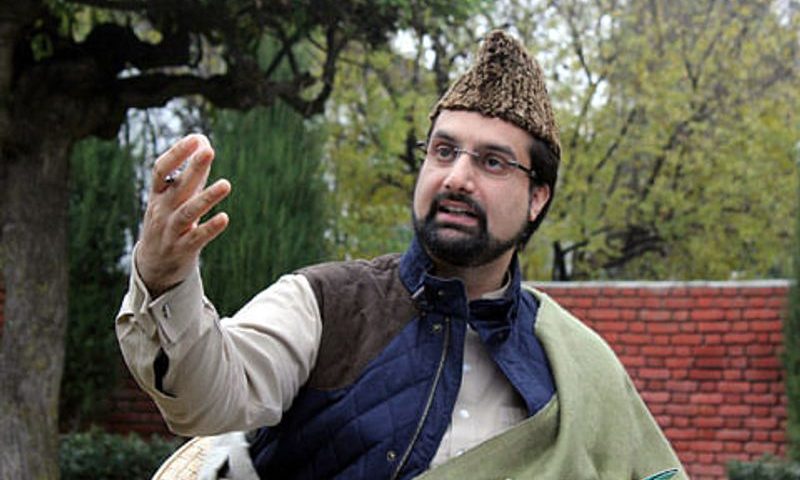The state government must play a major role in brokering peace
 The clashes at the National Institute of Technology in Srinagar between local and non-local students and the alleged lathicharge on the latter group by Jammu and Kashmir police poses the first challenge to the newly sworn-in Mehbooba Mufti government. The current spate of unrest was triggered by clashes between student groups who were on opposing sides while watching the India-West Indies T-20 cricket match. The non-local students were incensed by the Kashmiri students’ support for the West Indies side and since then, both sides have traded allegations and assaulted each other. More seriously, the outstation students claimed that the J&K police lathicharged them following which two companies of the CRPF have been stationed on the campus. University officials must realise police personnel, with their affinity to the lathi, cannot be trusted to keep their cool amid agitating students. Police entry into campuses must be allowed only under faculty supervision. The deployment of paramilitary forces on campus is a draconian, if not unprecedented, step. Union Minister of State in the PMO, Jitender Singh, has claimed that the situation has now returned to normal but the shadow of the gun on campus, and studies conducted in the presence of paramilitary personnel, shows a poor understanding of what accounts for a normal situation.
The clashes at the National Institute of Technology in Srinagar between local and non-local students and the alleged lathicharge on the latter group by Jammu and Kashmir police poses the first challenge to the newly sworn-in Mehbooba Mufti government. The current spate of unrest was triggered by clashes between student groups who were on opposing sides while watching the India-West Indies T-20 cricket match. The non-local students were incensed by the Kashmiri students’ support for the West Indies side and since then, both sides have traded allegations and assaulted each other. More seriously, the outstation students claimed that the J&K police lathicharged them following which two companies of the CRPF have been stationed on the campus. University officials must realise police personnel, with their affinity to the lathi, cannot be trusted to keep their cool amid agitating students. Police entry into campuses must be allowed only under faculty supervision. The deployment of paramilitary forces on campus is a draconian, if not unprecedented, step. Union Minister of State in the PMO, Jitender Singh, has claimed that the situation has now returned to normal but the shadow of the gun on campus, and studies conducted in the presence of paramilitary personnel, shows a poor understanding of what accounts for a normal situation.
Similar incidents of Kashmiri students cheering opposition teams rather than the Indian cricket team has led to tensions on other campuses too. The integration of Kashmir into India and the presence of the Indian Army in the Valley still has many opponents within Kashmir and this is one of the ways in which these students register their protests. We may not like it and such cheering of opposition teams may be offensive and objectionable to ardent nationalists, but these students broke no laws and such cheering cannot be said to have violated the limits to free speech. Resorting to coercive methods like bullying and violence, calling in the police, and filing sedition charges against the Kashmiri students is no way to politically engage with them. If anything, it only alienates Kashmiris and widens the divide that the central government has been working tirelessly to bridge. At the end of the day, cricket is just a sport and it is a beautiful game to watch, enjoy and then move on. Young people fighting, often physically, over a game of cricket is a common sight across India. But to escalate disputes over who is cheering whom in a game of cricket to a point where classes are disrupted smacks of youthful silliness.
The Centre must recognise this and urge the outstation students to return to the campus and help NIT officials restore normalcy. While the decision to send a two-member HRD ministry delegation to the campus was a wise decision, the same cannot be said of the CRPF deployment. The HRD delegation and the state government should attempt to broker peace between the student groups and ensure that the classes resume and the CRPF is moved out. The deployment of the CRPF on campus reflects New Delhi’s anxiety to take control of the situation and the Centre’s doubts about the Mehbooba Mufti government’s ability to solve such problems. But this also has the unintended effect of undermining the credibility of the elected state government. The college has functioned since 1960 and an overwhelming majority of its students are non-Kashmiris, a reflection of how normalcy has been restored in Srinagar. It is unfortunate that the nationalism debate in campuses has centred around pointless issues like sloganeering and cheering and only spawned more divisiveness. It is imperative that both politicians and students accept colleges and universities as spaces for free expression, dissent and the airing of unconventional and contrarian views.






